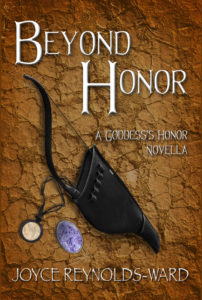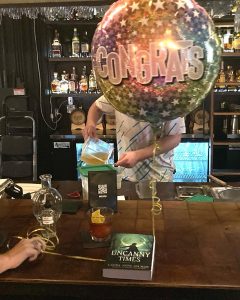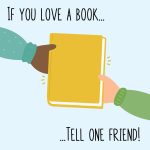I love chatting with other writers!
Joyce Reynolds-Ward and I met in the pre-pandemic days when I regularly traveled to conventions in the Pacific Northwest. She’s warm, funny, endlessly curious, and a fantastic writer. And a knowledgeable and enthusiastic horse person. So when I heard she’d just put out a new book, I couldn’t wait to find out about it.
Deborah J. Ross: Tell us a little about yourself. How did you come to be a writer?
Joyce Reynolds-Ward: I’ve been making up stories to entertain myself since I was little. At first, they were about books I’d read or TV shows I watched. Then I started writing stories off and on, starting with my junior high literary magazine continuing through the present day. I’ve gotten somewhat serious about writing since the late ’00s, however, and have been writing regularly since 2008 or so.
DJR: What inspired your book?
JRW: My most recently published book, A Different Life: Now. Always. Forever. was an attempt to write something light. Um. Well. Maybe. It’s set in what I call the Martiniere Multiverse, a spinoff from my main series, The Martiniere Legacy and the People of the Martiniere Legacy.
When writing A Different Life: What If?, I half-toyed with the idea of writing about my main characters, Ruby and Gabe, from the perspective of Ruby’s best friend in college, Linda Coates, who Ruby hires to be her executive assistant. The more I thought about it, the more I liked the idea, and I figured that it would make a nice, light little story, which was what I needed to think about after several years of Covid and my worries about the 2022 election.
Things kinda happened from there. The book took a more political tone after the reversal of Roe v. Wade, with Linda’s brother-in-law becoming a rising reactionary political leader who has nefarious designs involving Linda. But there are still light moments, and we have a bit of biobot action where Ruby and Linda release the latest version of Ruby’s bots that are intended to counter climate change by helping plants absorb and retain moisture better. Plus–Linda’s reaction to living in an Art Nouveau palace in Paris, France. That was fun to visualize.
DJR: What authors have most influenced your writing? What about them do you find inspiring?
JRW: My influences come from several very odd and unusual places, especially for a writer in the speculative fiction genre. One of my earliest influences was Mary O’Hara, of My Friend Flicka fame. If you have only read the first book, especially in an abridged edition considered suitable for children, you miss a LOT of the deeper undercurrents of O’Hara’s writing. The other two books in the trilogy, Thunderhead and Green Grass of Wyoming, delve into spirituality (O’Hara had become involved with early versions of Eastern mysticism) and conflicted, difficult marital relationships. Writing this, I suddenly realize that my character Gabriel Martiniere owes a little bit to O’Hara’s Rob McLaughlin. Not a lot–but there’s a little bit of Rob in Gabe.
 One thing to consider, though, about O’Hara, is that she was one of the original script doctors in Hollywood during the silent film era. While she only cites a few instances where she got called in to work on scripts gone wrong, it’s enough to make me wish that she had written a memoir about that Hollywood experience. Nonetheless, her life story (as related in Flicka’s Friend) is quite fascinating.
One thing to consider, though, about O’Hara, is that she was one of the original script doctors in Hollywood during the silent film era. While she only cites a few instances where she got called in to work on scripts gone wrong, it’s enough to make me wish that she had written a memoir about that Hollywood experience. Nonetheless, her life story (as related in Flicka’s Friend) is quite fascinating.
John Steinbeck is another literary influence that I frequently cite from my early days of writing. One of my high school English teachers used his Travels with Charley as a textbook for her advanced writing class. From Charley, I moved on to his Journal of a Novel, drafted while he was writing East of Eden. Then I went on to read all of his books. Steinbeck, along with O’Hara, taught me a lot about the use of settings in my work that I think really still shows up.
Otherwise, there are many writers who have influenced my work and made me think more about the process of writing and what I was doing while writing. Obviously, I read widely and well beyond the genre. Recent influences include C.J. Cherryh, Beverly Jenkins, Aliette de Bodard, Kate Elliott (especially her so-underestimated Jaran books), Craig Johnson, N. K. Jemisin, Mary Robinette Kowal, and many, many more. I am always eager to discover a new writer and new works. My ebook library card gets a LOT of use these days.
DJR: Why do you write what you do, and how does your work differ from others in your genre?
JRW: Originally, I started writing what I do because I wasn’t finding the books I wanted to read. I wanted to read about more strong women, but I also wanted to read fantasy in settings that weren’t quasi-medieval Europe, as well as science fiction that wasn’t set in Southern California or New York. I wanted to see more work that included the things I was interested in, including realistic horses, the inland West as a setting, examination of political power that didn’t make me want to throw the book across the room, and other things.
I write politics from my training in political science and the nearly two decades I spent as a political organizer. Some writers in genre have that knowledge and understanding, but many don’t. While my understanding is more on the state and local level, it’s enough to extrapolate for larger settings. Additionally, because I spent many years as a corporate wife at the middle management level in sales, I know somewhat more about some of the stuff that goes on in that realm than most people. The ins and outs of management fads, the degree to which certain things get done, the internal politics…all of that. I focus on multigenerational privately-held corporate entities rather than larger publicly-held companies because that’s easier to control in a story.
The inland West as a setting as opposed to the Southwest is also a way that I’m different from many writers who might set stories in the North American West. I have always been drawn to the juxtaposition of mountains and prairies, such as you find around the foothills of the Rockies, both the east side and the west side. The western prairies get much less awareness than the eastern prairies, because they’re smaller. But the land of the Palouse, both in Oregon and Washington, is just chock-full of story potential. While I grew up in Western Oregon and have some work set in Willamette Valley-esque settings, including the Cascades, the Plateau country of eastern Oregon holds a fascination for me. The Blues and the Wallowas are considered to be the westernmost extensions of the Rockies in the Northwest.
DJR: How does your writing process work? Continue reading “Author Interview: Joyce Reynolds-Ward”…


 One thing to consider, though, about O’Hara, is that she was one of the original script doctors in Hollywood during the silent film era. While she only cites a few instances where she got called in to work on scripts gone wrong, it’s enough to make me wish that she had written a memoir about that Hollywood experience. Nonetheless, her life story (as related in Flicka’s Friend) is quite fascinating.
One thing to consider, though, about O’Hara, is that she was one of the original script doctors in Hollywood during the silent film era. While she only cites a few instances where she got called in to work on scripts gone wrong, it’s enough to make me wish that she had written a memoir about that Hollywood experience. Nonetheless, her life story (as related in Flicka’s Friend) is quite fascinating.

 I didn’t start out thinking I would discount the entire Chaos Chronicles series in audiobook format. But when Chirp Books approved a special promotion on
I didn’t start out thinking I would discount the entire Chaos Chronicles series in audiobook format. But when Chirp Books approved a special promotion on 